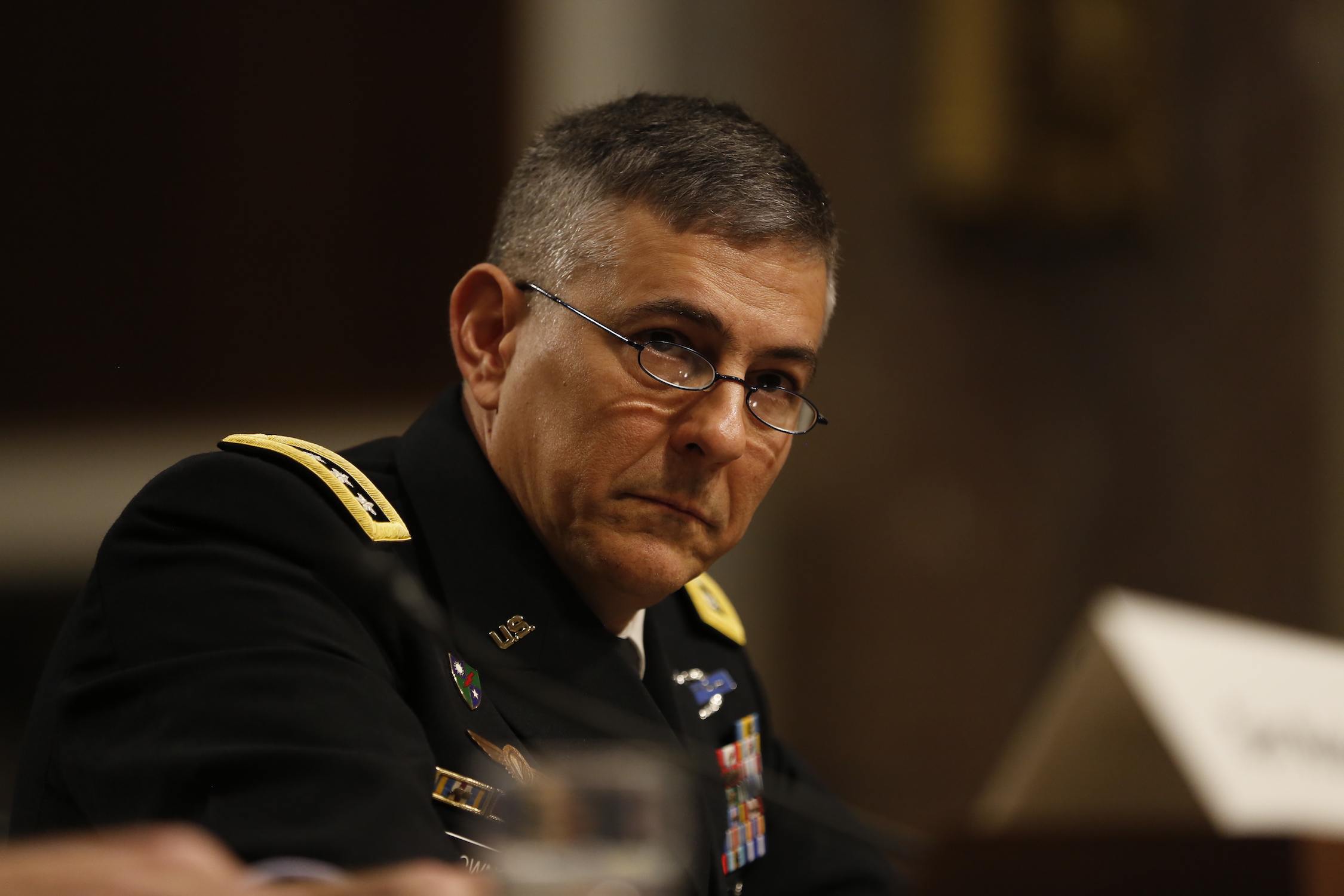The United States of America (USA) who declared as unacceptable and out of vogue, any change of government in Africa except as constitutionally enshrined through elections and popular ballot as coups undermine democracy and development. They however said African governments are corrupt and lead badly, which is why the military come after them.
The US, apparently responding to the four recent coups in the continent, assured therefore that any regime, which gains power through coups would not enjoy the support and recognition of the United States seen as the bastion of democracy.
This was disclosed by the Commander of the United States Africa Command (AFRICOM), General Stephen Townsend who while expressing surprise at the recent upsurge in spate of military coups in Africa, opined that bad governance and corruption may have been responsible for the coups.
In the last 18 months, the military has seized power in Mali, Chad, Sudan and Burkina Faso. Townsend had in a virtual briefing on Thursday, where he took questions from journalists, explained that the United States frowns at irregular or unconstitutional change in government as they do not agree with their understanding of governance which has to be democratic and the free choice of the people.
He added that it was difficult to state emphatically why nearly after 20 years of democratic governance with low military interventions, there suddenly has been an upsurge.
“So I don’t know why all that is, but my guess is that it has to do with insufficient governance, a lack of good governance, and corruption. I think that’s probably the most of it. And so as you know, as I said in my opening statement, the U.S. does not support or condone these unconstitutional changes of government and the broader effect they have on democracy and the progress of democracy. But I think that corruption and a lack of good governance is probably behind much of that,” he explained.
The Africom Commander deflected insinuations that a contest of super powers for influence in Africa was responsible for the coups and insisted that neither China nor Russia was largely responsible for the coups except where Russia was mentioned in Sudan. Russia and China appear to be contending for influences in the continent.
He said, “You asked about the involvement of the Russians and the Chinese in these coups generally. We have not seen that – have not seen any involvement by the Chinese in any of these coups. I don’t think they’re doing that, furthering that or promoting those. With Russia, I think it’s a little less clear. I think I have received reports of Russian involvement at least in Sudan in the not too distant past.”
On the rising cases of violent crimes mostly tagged banditry by some governments, the AFRICOM boss said: “So I would use a different term. I think the term ‘bandits’ is the wrong term. That makes it sound like a criminal problem. And my assessment is what’s expanding and causing the majority of the problem are terrorists. So I use a different term than bandits. Terrorists are expanding. We’ve seen ISIS and al-Qaida affiliates expanding in West Africa from Mali into Burkina Faso, and now we’re starting to see attacks in the neighbours of Ghana, Benin, Togo, Côte d’Ivoire. So, I’m very concerned about that.”
Townsend assured that collaboration by member countries in affiliation with the United States, added to consistent dialogue and information, as well as strategy sharing would yield better and faster results in taming the spread of terrorism.
On the rising influence of China in Africa and the concerns of the United States of America, he admitted that they were expanding into West Africa and the Gulf of Guinea where he suspects they want to have a naval base. He said they had some positive influences in development in the region but assured that where traps or exploitation of African partners were seen, they would raise the red flag.
According to him, the plan to have a naval base in the Gulf of Guinea was to check piracy and illegal fishing but alleged that most of the illegal fishing activities were carried out by Chinese vessels.
“Another topic that we discussed is China’s role in the world. And they’re a power on the rise, and I don’t think I’d begrudge them their ability to rise as a power in the world. But they also have a view to expand into Africa, particularly into West Africa and the Gulf of Guinea. And where they’re – where they’re helping African partners in a useful and positive way, I’m happy to see that and happy to see our African partners benefit from that.
“But where they’re exploiting our African partners, I think we ought to shine a spotlight on that. And there are some places where that is going on. And one area that concerns me is the Gulf of Guinea. The Chinese, I think, aspire to have a naval base in that area. And I think they aspire to have a maritime task force in that area, all for the purpose of preventing piracy and illegal fishing. But all the studies that I have seen say that the number one purveyor of illegal fishing in the Gulf of Guinea are Chinese fishing fleets. So, I think we ought to keep shining a spotlight on that kind of unhelpful involvement in the African continent,” he explained.





